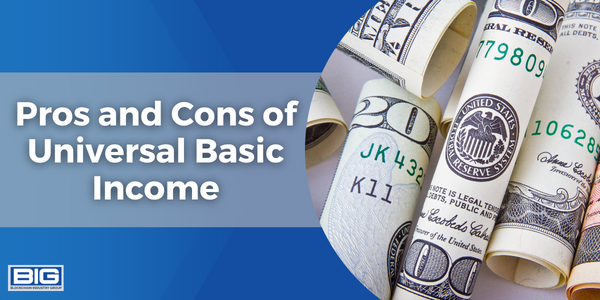
Pro Position
As the world continues to advance and new technologies emerge, the job market is undergoing significant changes. One potential consequence of these changes is the displacement of workers by automation and other technological innovations. As machines and software take on more tasks, some workers may find themselves out of a job or unable to secure employment that provides a sufficient income.
In response to this trend, some experts argue that universal basic income (UBI) may be necessary to ensure that all individuals have a minimum level of financial security. UBI is a policy proposal that would provide a regular cash payment to all members of a society, regardless of their employment status or income level. This payment would be intended to cover basic needs such as food, housing, and healthcare, and would be distributed on an ongoing basis.
There are several reasons why UBI may be necessary in the face of technological change. First, automation and other technological innovations are likely to continue to displace workers, and UBI could provide a safety net for those who are unable to find employment. Second, UBI could help to stimulate economic growth by providing individuals with the financial means to consume goods and services, which could in turn create new jobs. Finally, UBI could help to address income inequality by providing a guaranteed income for all members of society, regardless of their occupation or socio-economic status.
While UBI is still a relatively controversial policy proposal, it is gaining support among some experts as a potential response to the challenges posed by technological change. As the job market continues to evolve in the coming years, it will be important to consider policies such as UBI that can help to ensure the financial security of all individuals.
Con Position
Universal basic income (UBI) is a policy proposal that would provide a regular cash payment to all members of a society, regardless of their employment status or income level. While UBI has been proposed as a potential solution to the challenges posed by technological change and automation, it also has its fair share of criticisms and drawbacks.
One downside to UBI is the cost. Providing a basic income to every member of society would be expensive, and it is not clear how this cost would be funded. Some proposals for UBI involve increasing taxes on the wealthy or redirecting existing government spending, but these options may not be politically feasible or may be unpopular with certain groups. Alternatively, UBI could be funded through the creation of new taxes, but this could be burdensome for individuals and businesses.
Another downside to UBI is the potential disincentive to work. Some critics argue that providing a basic income to everyone could discourage individuals from seeking employment, as they would have a guaranteed income regardless of their employment status. This could lead to a decline in the labor force and a reduction in economic productivity.
Another concern with UBI is that it may not address the root causes of poverty or inequality. While UBI could provide a financial safety net for those in need, it may not address the structural issues that contribute to poverty and inequality, such as discrimination, lack of access to education and healthcare, and economic policies that favor the wealthy. As a result, UBI may not be a long-term solution to these issues.
44 Innovative Artificial Intelligence Companies
—
5 Benefits of Artificial Intelligence Technology
—
A Brief History: Artificial Intelligence (AI)
Finally, UBI could be subject to misuse or abuse. Without proper oversight, some individuals may use their basic income to engage in activities that are harmful to themselves or society, such as substance abuse or criminal activity.
Overall, while UBI has the potential to provide a financial safety net for individuals in need, it also has its fair share of criticisms and drawbacks. It will be important to carefully consider these issues when evaluating the feasibility and effectiveness of UBI as a policy proposal.



